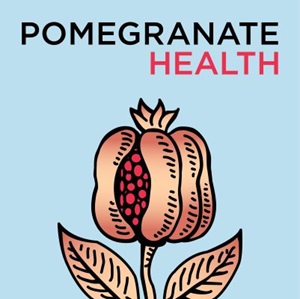Pomegranate Health
A podcast about the culture of medicine.

You'll hear clinicians, researchers and advocates discuss all aspects of professionalism and quality improvement in healthcare. This includes clinical ethics, diagnostic bias, better communication and more equitable systems.
For a sampler of these diverse themes of professional practice take a listen to Episode 132 and Episode 125.
If RACP is your CPD home, you can log time spent listening to each episode with the "Add activity to MyCPD" button. And if you're a Basic Physician Trainee, the [Case Report] series might help you prepare for your long case clinical exams.
This is also the home of [IMJ On-Air], featuring authors from the Internal Medicine Journal sharing their latest research. Meanwhile, the [Journal Club] episodes give RACP members a place to talk through their research published in other academic journals.
Feel free to leave feedback in the comments section for each episode or send it to us via email at podcast@racp.edu.au.
Latest episodes
Ep100: Conversations with ChatGPT
Natural language processor models could save hours of time spent writing clinical notes and searching through preexisting ones. But there are problematic aspects to networks on the scale of the astounding ChatGPT.
Ep99: When AI goes wrong
Uncertainty around the medicolegal aspects of AI-assisted care is of the main reasons that practitioners report discomfort about the use of this technology. It's a question that hasn’t been well tested in the courts but there is evidence about the types of adverse events that result.
[IMJ On-Air] A tiger in the mallee: Victoria’s JEV cluster
In early 2022 Victorian physicians saw a cluster of patients presenting with fevers, confusion and Parkinsonian symptoms. These would be identified as the first cases of Japanese encephalitis virus acquired on Australia’s mainland in 24 years.
Ep97: The governance of AI
The inexplainability of deep learning models creates discomfort for some clinicians and regulators. But AI-based clinical interventions can still be tested to the standards of evidence-based medicine we are accustomed to.
Ep96: The ergonomics of AI
AI-assisted medicine can help overcome some of the natural limits of human cognition. But it all depends on how seamlessly the machine learning devices fit in with decision-making in the clinical workflow.
Ep95: Machine Learning 101
Artificial intelligence can help interpretation of diagnostic images and perform very nuanced risk stratification based on medical records. But machine learning algorithms must be trained on good quality data to avoid error and bias from being introduced.
Ep94: Facing up to racial bias
There is systematic variation in delivery of care to culturally diverse patients in all fields of medicine. This podcast highlights the subtle biases that affect clinical decision-making by practitioners and provision of services at an institutional level.
Ep93: The rise and fall of mpox
In 2022 a sexually transmitted form of mpox virus made its way around the developed world but it had long been endemic in African countries. In this podcast we talk about the conditions that allowed new strains to evolve and the rapid community health response that reigned the global outbreak in.
Ep92: Data-driven practice improvement
The field known as Practice Analytics seeks to provide clinicians with a bird’s eye view of their case load and performance. This can draw attention to cases that stood out from the trend and help reflection and practice improvement.